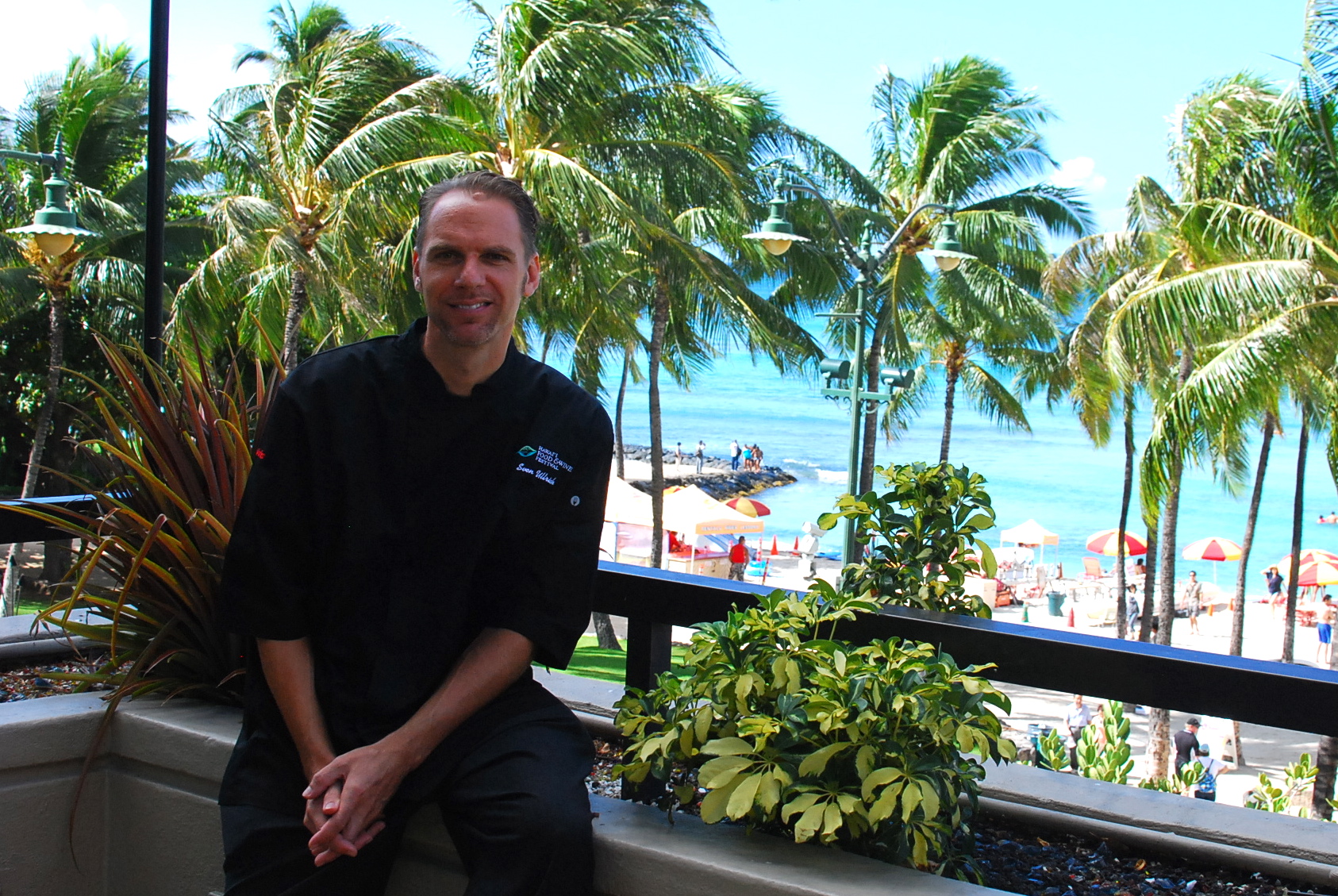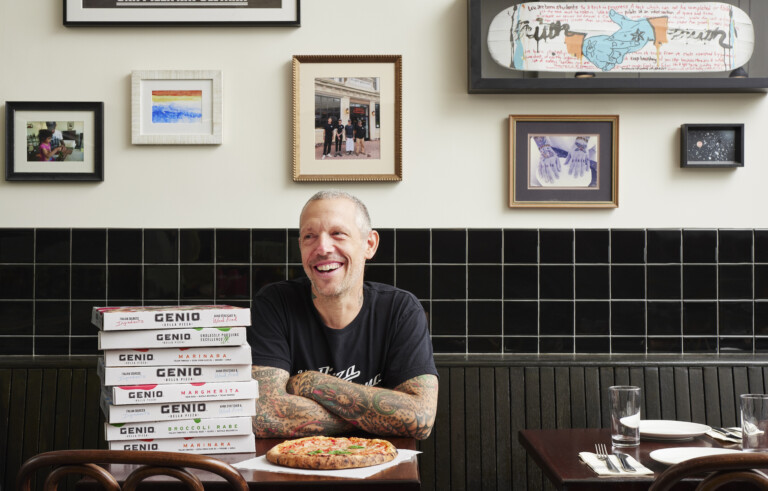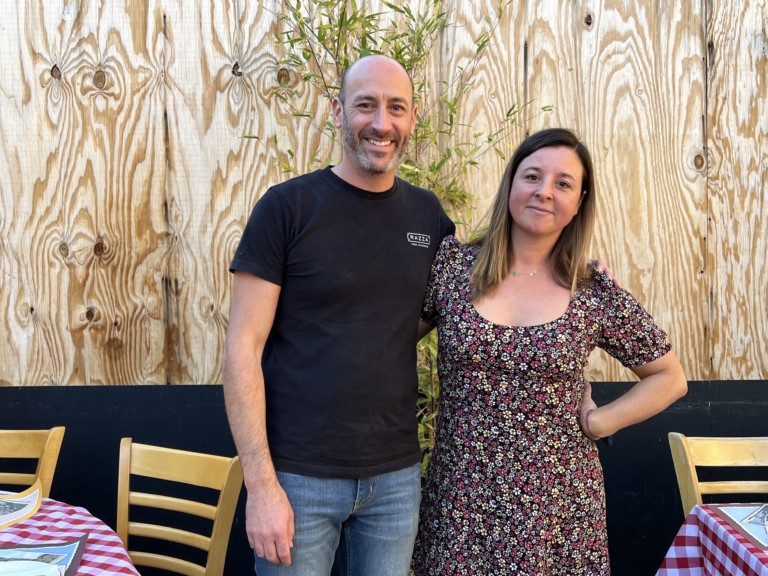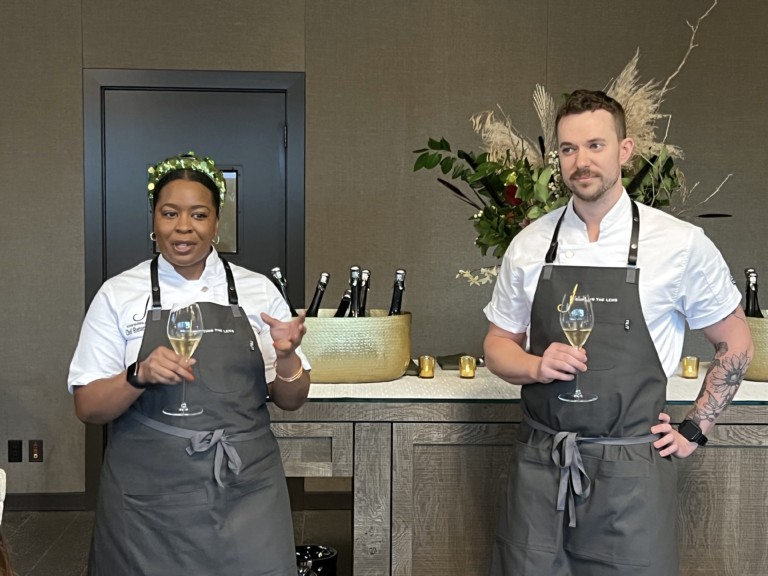INTERVIEW CONTINUED FROM PREVIOUS PAGE
JL: Considering you have so much responsibility here at the Hyatt, what steps do you take to achieve balance in your life?
SU: I’m very fortunate working for Hyatt, because Hyatt values the time outside, family life, private life. I have a very healthy balance of family versus work. I also need good managers. That’s part of my whole success. It took me awhile to find the right team to surround me with. Now I have a fantastic team that I can rely on, and I respect a lot. That’s really my key to keeping a balance between work and private life.
JL: Who else in the restaurant industry do you look to for inspiration, guidance or advice?
SU: Restaurant chefs. We in hotels have very different responsibilities. I like to use the example of my best friend. We did our apprenticeship together. We went different routes. He went the restaurant route and worked for Michelin starred chefs and now has two Michelin stars. An amazing cook. I could not even do his job in one day. He’s just amazing. At the same time, I feel that if we were to switch roles, he could not do my role either because we have very different responsibilities. Of course I have more meetings. He just cooks every single day. I have a lot of meetings from A to B to run to, but I think that’s the key difference really. That’s what I chose, and that’s what’s exciting about my role and where I feel it’s a different job to work in a hotel. The inspiration I get is from the restaurant chefs, because they cook all day. They cook 10-12 hours every single day. They’re the ones really telling us what’s hot, what’s in, what’s cool, not the hotel chefs. We are using them in order to get our creative juices flowing. I look up to those guys. I work today with a lot [at Hawaii Food & Wine “Girls Got Game”], with six chefs from around the globe, from Taiwan, from San Francisco, from New York, so I’m looking to those guys. I learn from them and I’m getting inspiration from those guys. Inspiration? That’s where it’s from. Definitely not from television.
JL: Who’s your best friend? What’s his name and restaurant?
SU: His name is Heiko Nieder. He’s cooking in Switzerland, in Zurich in [The Dolder Grand] Hotel. It’s the only five-star resort in Zurich. His restaurant, he’s the executive chef and has two Michelin stars. He just got it two years ago, his second Michelin star.
JL: You’re from Hamburg?
SU: Yes.
JL: The birthplace of the hamburger?
SU: No.
JL: It’s not?
SU: It is, actually. Yes, it’s correct. The history, I had to read about it, of course. It started off in a little butcher shop, from a ham, though. It was a piece of ham that they ground up into a burger style patty. Of course it made its way across the ocean to the United States. That’s really a long, long time ago. Is Germany the birthplace of the hamburger? I don’t think so because it’s not shredded ham burgers, but if you look back in history, it’s correct. It started with ham, nothing to do with the Hamburg town. Interesting.
JL: Consider the connection to hamburgers, what do you think is the ultimate hamburger recipe?
SU: I like the gourmet style hamburgers, I have to say. #1, take the best meat you can get your hands on. Take your Wagyu, take your Kobe, take something exciting, and grind that down. Then of course you need a phenomenal bun. The bun is the key here. If you have a great piece of meat, ground meat, a beautiful bun, you’re halfway there. Now just picture gourmet ingredients. I like the groovy stuff. I like a Wagyu burger with some foie gras on it. I like a peppery jam. Just outside the box. That’s, for me, a cool burger.
JL: What do you want people to think of when they hear your name?
SU: First of all, a manager that’s very fair and pushes his staff to the limits. That’s what I like to do. I like to get the best out of people and really push them hard. That gives me a lot of satisfaction. At the same time, people need to understand that I feel strongly about the local movement. Especially here in Hawaii. That’s part of the reason why I came out here. We have phenomenal seafood. Why should I fly in barramundi – which is a great fish – but flying it in from Australia? Staying local, staying true to the Hawaiian regional cuisine, that’s very important. We’re able to do that in both restaurants. We have this one [SHOR], really a farm to table type of concept, and the other one [Japengo] being heavily focused on Japanese ingredients, because it’s a Pacific Rim restaurant. We also stay true to the local. We have local lettuces there from Ma’o Farms. We’re using local exotic fruits from Waimea Valley. That’s what I want people to know about me. Hotel chefs are not always like this. We have a few here on the island that are really committed, like myself, but I have to think outside the box because we have volume. We do 1,000 covers here every morning. There’s no restaurant that does 1,000 covers every morning. I have responsibility with that. I can support a local farm with a quantity where a small restaurant can’t. I’m using the example of 12th Avenue Grill and Salt that support local farmers. Phenomenal. They’re great. They write the menu according to local farmers. Me, I can help. I’m more of the bulk. I’m using Kalei Eggs. I push a lot of eggs through our breakfast. I’m helping them stay in business, which gives me great satisfaction.









Leave a Comment